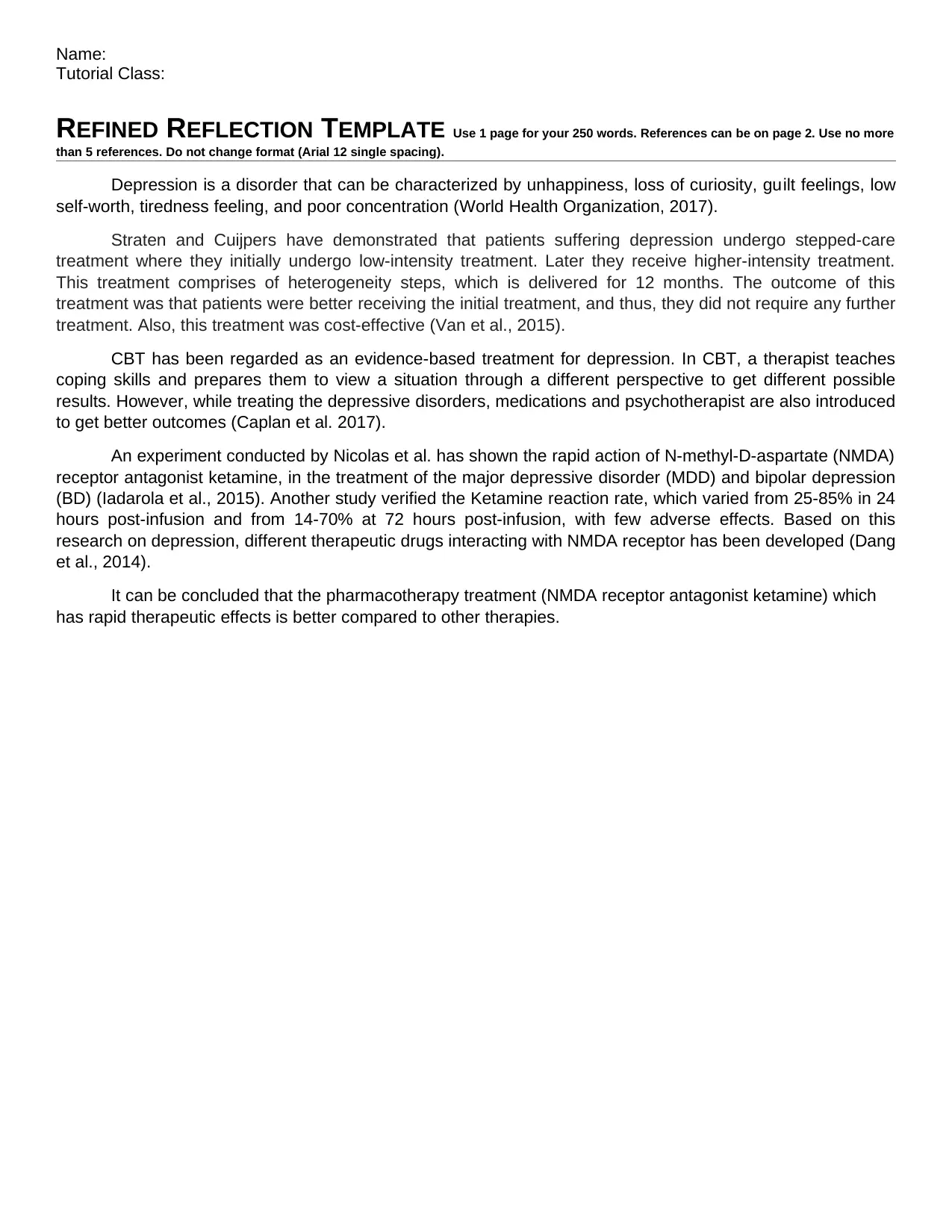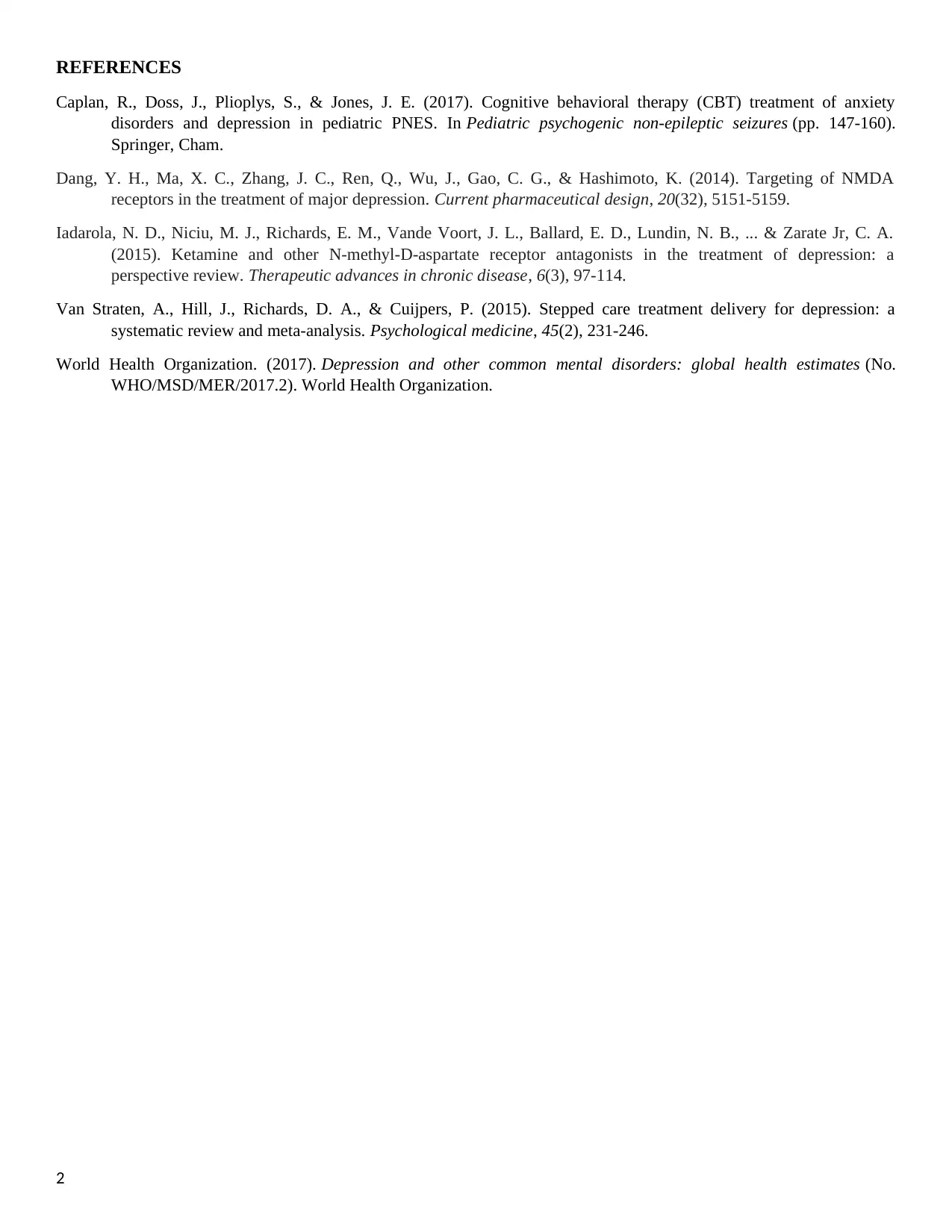Reflection on the Effectiveness of Depression Treatments: A Review
VerifiedAdded on 2022/09/25
|2
|603
|19
Homework Assignment
AI Summary
This assignment, a reflection paper, delves into the realm of evidence-based treatments for depression, meticulously examining the efficacy of various therapeutic interventions. The paper begins by introducing the multifaceted nature of depression, outlining its key characteristics and the stepped-care approach often employed in its treatment. It then explores cognitive behavioral therapy (CBT) and interpersonal psychotherapy (IPT) as prominent evidence-based approaches, highlighting their effectiveness, particularly in specific contexts such as adolescent depression. The reflection also investigates the role of pharmacotherapy, specifically focusing on the rapid action of N-methyl-D-aspartate (NMDA) receptor antagonists like ketamine in treating major depressive disorder and bipolar depression. The paper references several studies and articles to support the claims. The conclusion emphasizes the potential advantages of treatments with rapid therapeutic effects, such as ketamine, over other therapies.
1 out of 2



![[object Object]](/_next/static/media/star-bottom.7253800d.svg)